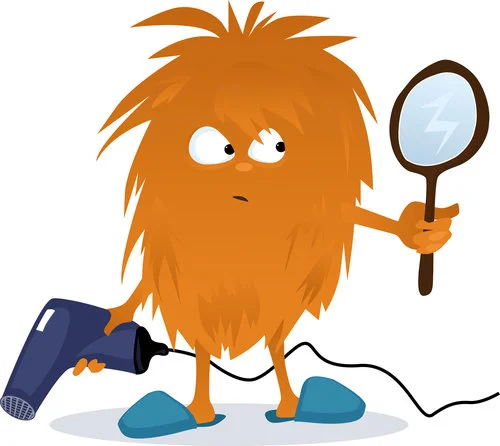Cricket scandal reflects a broader need to face the mirror
The ball tampering issue has been headline news here for days. I haven't really followed the Australian team for around 20 years, for two reasons. Firstly, I've found better things to do with my time, but also because over that time frame, the players have become increasingly aggressive. Playing hard but fair is one thing, however sledging and bad sportsmanship is quite another. As such, I'm not surprised such a thing has happened - it is probably just a matter of time.
What has been most interesting to me is the way the nation has reacted, though. Despite the fact corruption and theft has been uncovered within the Victorian government, that issue got barely any air time or coverage. But everyone seems to be talking about this ball tampering issue - and ironically, I think much of the discussion accurately sums up the nation's current state of mind.
For many people here, the Australian cricket team probably represents one of the few things about our culture that hasn't changed beyond recognition in recent decades, and as such, is depended upon for stability when everything else is (or at least feels) unstable. Cricket also relates to the summer holidays, when many people are with family and friends, and not engaged with the wider world. It's one of the few times people can switch off, and just be "in the moment". This part of the culture includes either watching or listening to the cricket. As such, people feel good about things, and see themselves in a simpler light. Everyone shares the beach, and there is (in theory) not too much aggression. And while in this soporific state, we can forget about modern life, and issues like inequality and homelessness. We can look around, see everyone having fun, and delude ourselves that everything is OK.
What I think the cheating incident has done is to smash this brittle self-perception of ourselves. There are no places left to hide, now that the modern world has breached this last bastion of our culture. Smith and Warner have been crucified in the media, not only for what they have done of itself, but because they have shattered our collective belief that we always play "tough but fair".
And the anger felt by the average person around this is absolutely visceral. Even if they don't understand where it's coming from, it feels as though the sky has fallen. Even the time of year we guard jealously has a permanent taint. For many, there is now nothing left untouched that is innocent, pure, or simple.
In the long run, I think that this might be a healthy thing for us culturally. Perhaps we previously imagined ourselves to be culturally far off in the South Pacific, a friendly, relaxed and fair people in a sunny paradise with plenty of food and everyone being equal.
If we look at the mirror, though - a very different picture emerges, both good and bad. We are a successful multicultural nation, with most people getting along most of the time, and our legal and economic systems give us a high standard of living. We are also improving socially, with gay marriage legalised and much less sexism than we had a generation ago.
But we also have weaknesses that we haven't been facing up to. We have been living on the continent's natural capital for far too long, and the bill is coming due in terms of higher energy and water costs. Our cost base is far too high to be competitive across a whole range of industries, and our export profile resembles that of a third-world nation. We have a yawning gap between rich and poor, and our tax and welfare systems are not keeping up with the times, making it harder for people to escape poverty.
Much of our mentality is short-term and selfish. We take in immigrants every year, we house them in outer suburbs with few services, and we build over our most productive farmland. City life gets more and more congested, and yet many of our rural areas lose population. These country areas cannot retain skilled professionals, or even find enough fruit pickers, due to a lack of investment and foresight in infrastructure and education.
More than anything else, though, most of our population don't actually think, though. We've lived off nature's bounty for so many decades that most of us don't know of any other way to make a living. Beyond that, many of us still don’t face economic reality, because government either pays or protects us. The last time we had to think for ourselves was before the railways came through in many areas, and we had to rely upon our own resources - rather than buy the answers from a catalogue, a store, or online.
Likewise, having never had to problem-solve anything either individually, or collectively, many of us are not very good at it. The fact that all levels of our education system reflect yesterday's world rather than the modern world doesn't help us to adapt. As a consequence, we have a yawning trade deficit in tech-related goods and services, because enrolments in IT courses are still falling.
We build gigantic, expensive houses to cocoon ourselves from the modern world, rather than trying to engage with it - and with each other. Some of us work ridiculously long hours to pay off these expensive mausoleums, while others cannot get enough hours of work to pay the bills. Many of us don't know our neighbours, and our young people are struggling with many challenges, making suicide one of the leading causes of death nationwide for those aged under 30.
We expect the government to help those who need it, but do nothing much ourselves - and we scream blue murder if our taxes rise to pay for government programs. We are often not the bronzed ANZACS we like to think we are, but a bunch of soft, overweight namby-pamby NIMBYS.
It is high time many Australians actually chose to engage proactively with the world around them. It won’t be easy, and doing may require us to really question what our collective values are. But we need to get on with it – not stick our heads in the sand and wish that our challenges will go away.







